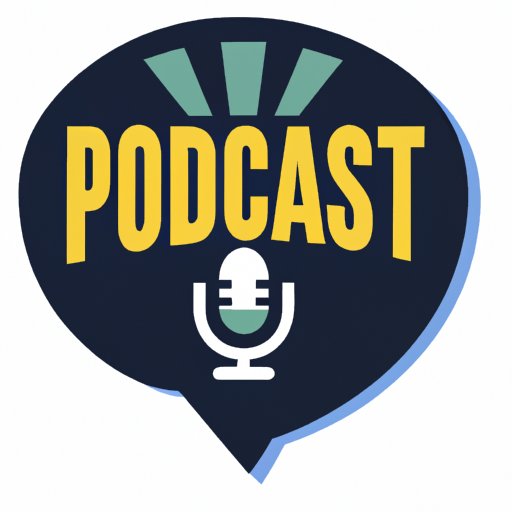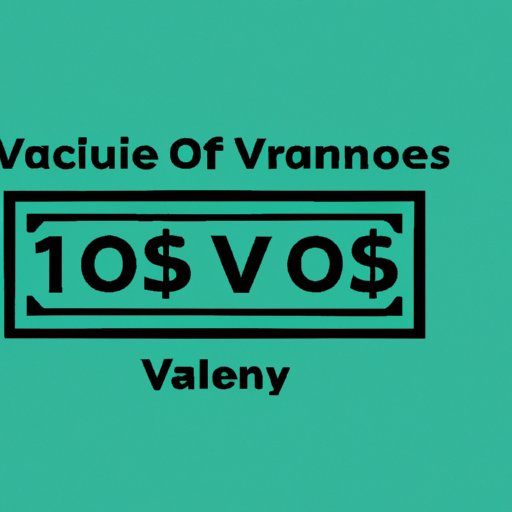
I. Introduction
Podcasts are an increasingly popular form of entertainment and information, with an estimated 144 million Americans tuning in to podcasts in 2021 alone. Many people are drawn to the podcasting format because it offers a level of intimacy and convenience that other media formats cannot match.
While the idea of producing a podcast can be exciting, many people wonder whether it is possible to make a profit from their show. Monetizing a podcast is a complex process that requires a strategic approach and a deep understanding of the industry. In this article, we will explore the different avenues for making money from podcasts, as well as real-life examples of successful podcasts that have found monetization strategies that work.
II. Podcasting for Profit: How to Monetize Your Show
One of the most common ways to make money from a podcast is through sponsorships and advertisements. Podcasts with a dedicated and engaged audience can attract advertisers who want to reach that specific demographic. The key to finding sponsors is to focus on creating high-quality content that resonates with your target audience.
One successful podcast that has used sponsorships to generate revenue is “The Joe Rogan Experience.” The show, which features long-form conversations with guests from a variety of backgrounds, has amassed a significant following over the years. Rogan’s conversational style and willingness to tackle controversial topics have made the show a reliable source of engagement for sponsors and advertisers.
Another way to make money from a podcast is through affiliate marketing. This involves promoting a company’s products or services on your show and earning a commission on any resulting sales. This can be an effective strategy for podcasts that have a niche following.
Podcasts can also sell merchandise related to their show, such as t-shirts, mugs, or other branded items. For example, the true crime podcast “My Favorite Murder” has a popular online store that sells everything from t-shirts to socks to enamel pins. This can be a way to supplement other monetization strategies and generate additional revenue.
When looking to monetize your podcast, it’s important to have a clear understanding of your target audience and what they expect from your show. This will allow you to create content that resonates with them and attracts potential sponsors or advertisers.
III. The Business of Podcasting: Turning Your Passion into a Profitable Venture
While podcasting can be a fun hobby, turning your show into a profitable business requires careful planning and a deep understanding of the industry. Before you start monetizing your podcast, it’s crucial to identify a specific niche and target audience that you want to attract.
Understanding the financial aspects of podcasting is also important. While producing a podcast can be relatively low-cost compared to other forms of media, there are still expenses involved, such as equipment, hosting fees, and marketing expenses. It’s important to have a clear understanding of the potential revenue sources for your show, such as sponsorships, merchandise sales, or affiliate marketing.
Another key to success in podcasting is to grow a dedicated listenership that engages with your content and becomes invested in your show. Building a community around your podcast through social media, email newsletters, or other marketing strategies is crucial for attracting potential sponsors or advertisers.
IV. Behind the Scenes: The Reality of Making Money from Podcasting
While it’s possible to make a living from podcasting, it’s important to be aware of the challenges and obstacles that come with the territory. Building a successful show takes time, effort, and dedication. It can also be challenging to attract sponsors or advertisers in a crowded market.
One example of a podcaster who has struggled with making money is “Serial” host Sarah Koenig. Despite the massive success of the first season of the show, Koenig has been vocal about the difficulty of monetizing the podcast. In an interview with The New York Times, she stated that “we had no idea how to monetize Serial because it just wasn’t designed to be that way.”
Despite these challenges, many podcasters have found ways to overcome obstacles and turn their show into a viable source of income. One way to stay motivated is to focus on creating high-quality content that resonates with your audience.
V. Leveraging Your Podcast to Grow Your Business
Aside from attracting sponsors or advertisers, podcasts can also be a valuable tool for businesses looking to increase their exposure or customer base. By featuring guest interviews or showcasing their products or services, businesses can create a personal connection with potential customers and build brand awareness.
One example of a business that has successfully used podcasts to grow its brand is “The Tim Ferriss Show.” Ferriss, a renowned author and entrepreneur, uses his podcast as a way to connect with other successful businesspeople and share insights on productivity, health, and personal growth. Through his show, Ferriss has been able to build a personal brand that has helped him attract new readers and customers.
When creating a podcast for a business, it’s important to consider your target audience and the goals of your show. Whether you’re looking to generate leads or build brand awareness, a well-produced and engaging podcast can help you reach those goals.

VI. The Value of Consistency in Podcast Monetization
One of the most important factors in monetizing a podcast is consistency. Regularly producing high-quality content is crucial for retaining listeners and attracting sponsors or advertisers.
When planning your podcast, it’s important to create a publishing schedule that you can realistically stick to. This could mean producing episodes weekly, biweekly, or monthly, depending on the resources and time you have available. Scheduling episodes in advance and having a clear plan for future content can also be helpful in maintaining a consistent publishing schedule.
One example of a podcast that has built a following through consistent content production is “The Daily,” produced by The New York Times. The show, which features in-depth news analysis and reporting, releases a new episode every weekday. This consistent production schedule has allowed The Daily to build a loyal following among listeners who value the show’s insightful reporting.
VII. The Future of Podcasting Revenue: What to Expect in the Coming Years
As the podcasting industry continues to grow and evolve, new monetization strategies may emerge that will change the way podcasters earn income from their shows. Emerging technologies like voice-activated assistants and smart speakers could provide new opportunities for podcasters to engage with listeners and attract sponsors or advertisers.
Experts in the field believe that podcasting revenue will continue to grow in the coming years. In a report released by the Interactive Advertising Bureau and PwC, podcast advertising revenue was projected to reach $1 billion by 2021. This growth is driven in part by the increasing popularity of podcasts among younger audiences.
VIII. Conclusion
Podcasting can be a fun and creative way to express yourself and share your ideas with the world. While making money from your show is not an easy task, it is possible with careful planning, dedication, and consistent production of high-quality content. By identifying a niche, building a dedicated listenership, and exploring different monetization strategies, podcasters can turn their passion into a profitable venture.
If you’re thinking about starting a podcast or looking to monetize an existing show, we hope this article has provided you with valuable insights and inspiration. Remember to stay focused on your goals, stay consistent, and always keep your audience in mind as you create your content.





